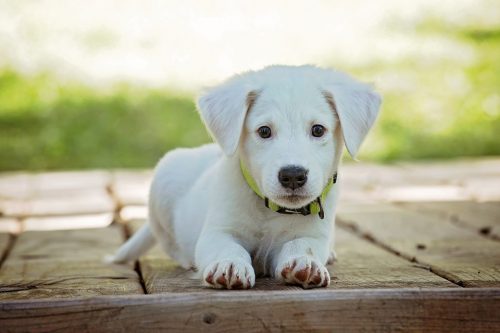What Are the Best Times To Feed a Puppy?
What could be a better addition to the family than a puppy? However, along with love, fun, and affection, it also brings with it a fair amount of work to divide between the family members. That includes devising a good feeding schedule.
Before you know it, that tiny ball of fur grows into an adult-sized dog with a pup’s mentality. Dogs tend to develop faster physically than they do mentally. Hence, most of their early years revolve around one thing: food.
Pups are tireless balls of energy that need a regular and balanced diet to keep them active and healthy. So, what are the best times to feed them, and what should you feed them with?
That’s what we’ll go over today so you can feed your young canines appropriately throughout their development. You can check My Sweet Puppy for more pup feeding tips.
Pup Feeding Schedules Across Development Milestones
A pup’s feeding routine varies across its development stages, and following them helps ensure better growth for your furry friends.
One-and-a-Half to Three Months
Once weaned from their mamas and introduced to their new homes, pups need to be fed several times a day. They develop the fastest at this age and should be fed four times around the same time each day.
You should strictly feed them with pup-specific diets, as they’re packed with the nutrition necessary for supporting these tiny canines’ growth. If you’re diverging from commercial to homemade, consult your vet about your pup’s dietary needs.
As far as commercial dog food, puppies should be able to transition to dry-moist food at around two months. Before that, it is recommended you stick to wet food.
12 To 24 Weeks
You can dial down the feedings from four to three at this age but still maintain a same-time schedule for each meal. That means breakfast, lunch, and dinner should occur at the same time daily. While most of your pup’s diet should still consist of puppy food, you can adjust the amounts as necessary.
Working regular hours should result in a puppy feeding schedule that looks similar to this:
- 6:00 am: Breakfast followed by a morning walk around the neighborhood
- 7:30 am: Playtime
- Noon: Lunch followed by an outdoor walk if it isn’t too hot
- 5:00 pm: Outdoor walk
- 6:00 pm: Evening meal
- 7:00 pm: Playtime before bed
Pups usually lose their fat at around three months, so it’s normal for a parent to suspect weight issues at this age. For your peace of mind on this matter, speak to your vet. That way, you may apply the appropriate adjustments to your puppy’s food quantities.
Six Months To One Year
This is around the time your pup transitions to adolescence. It’s also when you adjust their meals to about two a day. Until your pups are spayed or neutered, it is advised that you continue feeding them pup-specific food.
You may then transition to adult maintenance dog food, depending on the dog’s age. Pups sourced from shelters and rescue groups typically undergo fixing as young as two months but remain on a strict puppy food diet until six months.
Amount of Food To Feed Your Pups
Outside of the generic pup feeding guidelines is the portion size, which tends to be specific to an individual dog. It can’t even be categorized as breed-specific, as this aspect is more dependent on a dog’s personality.
So, while portion sizes are, in part, determined by a dog’s growth, it’s just as influenced by a pup’s intrinsic qualities. Health also dictates if you should add or remove from your pup’s meals.
If your dog hasn’t quite lost the puppy fudge after the third month, you might want to decrease the portion sizes. In the same vein, if your little ball of fur seems lacking in the weight department for its age, it could be time to dial up those portion sizes.
Generally, spreading several meals throughout the day equally is the ideal way to feed a pup. This feeding schedule should allow for the equal distribution of your pup’s daily nutritional needs. When you stick to a same-time-of-day feeding approach, you get a fixed potty schedule, as well.
Which Food Is Best for Your Pup?
There’s a vast assortment of pup food that it’s sometimes difficult to determine which brand suits your individual pup’s needs best. Generally, you want to pick something that’s nutritionally balanced and complete.
That said, if you’re a parent to one of the more sensitive breeds with specific diets, you might want to consult a vet to discover the most suitable option.
Your Pup Is Unique!
Every pup is one of a kind, and its dietary needs change as it grows and gets older. Observe how your puppy eats, track its growth, and consult a vet any time you have concerns about its food intake.
More than anything else, enjoy your time with your precious canine furball. After all, it won’t stay a pup forever.




